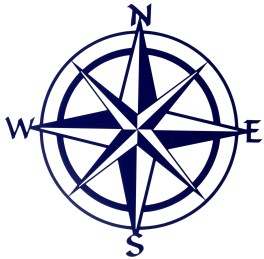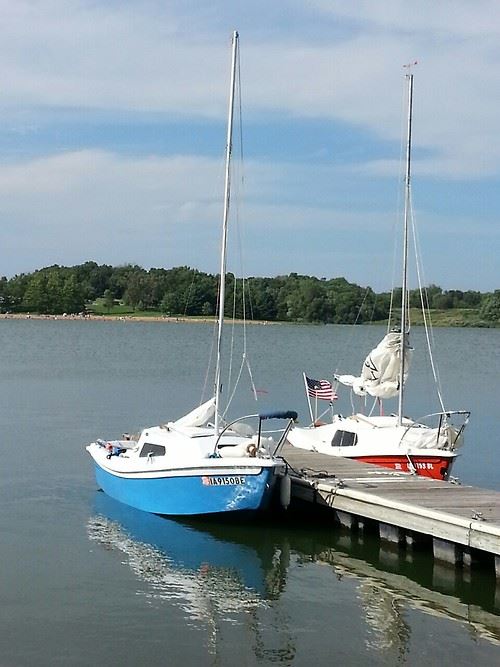1 September 2023 #15

INLAND WATERWAYS
Blakely BoatWorks in Mobile, Alabama, is building a new Tier 4 Z-drive tugboat for Crescent Towing. Tier 4 engines are the preeminent environmentally safe motors for non-road machinery that meet all the current EPA standards, and hopefully, future regulations. Like a bow thruster, the Z-drive is a propulsion unit capable of turning 360 degrees. This unnamed vessel will be powered by Caterpillar 3561E motors that produce a tad over 3,000hp to those Kongsberg 255 fixed-pitch azimuthing drives. From an amateur’s perspective, this envisions a Cadillac of tugboats.

Our beloved friend, China, played havoc on the maritime industry through a “threat-actor” called Volt Typhoon by which they used a series of innocent-looking emails to enter the working of a computer. It is called “phishing” The FBI’s Internet Crime Complaint Center (IC3) noted that a Microsoft report indicated over 58,000 hack attempts last year. Typically, they use a message disguised as a bid request for something, and when the user opens the mail the hack enters the hard drive.
The hackers routinely use real credentials from well-known addresses harvested through studious research. Worse, Spoofers know something about a company or personal information to gain personal or business information.
Having been hacked a few times, I know the frustration and turmoil such activities create. One got into my bank account forcing me to close all accounts and reopen new ones. Bills are directly paid from my accounts and income (social security) enters directly, it took months to undo the damage. My computer had to be “cleaned” by a professional. The hack came under the guise of information from APPLE regarding my new computer.
Jobs abound within the inland waterways. Want ads beg constantly for pilots, tankermen, surveyors, deckmen, radar personnel, firefighting, welders, and engineers. The benefits are incredible and the income is a lot better than for teachers.
Ocean underwater welders make from $80,000 to $100,000 annually, but freshwater welders make closer to $50,000 and above. Either way, it beats welding on mufflers at Farkle’s Automotive and Antiques Shop.

ENVIRONMENT
France is in an uproar over little plastic beads that have covered some of the most idyllic beaches in Europe. These small commercial blobs are utilized in making plastic “stuff” ranging from water bottles to toys. According to French authorities, about 160,000 tons of these pellets end up in European waters and about 200,000 tons end up in the oceans around the world. Many of these little balls are ingested by fish and mussels.

Over 20,000 shovel-nose sturgeons have died in the Des Moines River, a mega-center for these fish in America, because of warm water during the Midwest drought. The water temperatures are above 80 degrees.
SMALL BOATS
The Irish Curragh (the word stems from the Latin word for “hide”) is an ancient boat whose history goes back over 1600 years. Typically, the ancient Irish used canoes or small boats for fishing, especially along the West of Ireland. These boats were framed in a wicker fashion and wrapped with hides, sometimes with double or triple coverings. They were very light and easily carried from one creek to another, or so says Giraldus, a writer of note in the early 1100’s. Supposedly, St. Brendan and his associates sailed such a craft covered with tanned hides over wickerwork sides and cowhide tanned with oak bark. The seams were well tarred. Of course, the Irish claim they were the first Europeans to discover the North American continent long before the Vikings. The Irish and the Scandinavians have never agreed on much for at least a thousand years.
The difference between a currach and a coracle is mostly linguistics. The former is Irish and the latter is Welch. Both mean very oblong vessels covered with hide. Some currachs are downright round like a tub. Nevertheless, the boat has a rounded bow and long parallel sides running to the stern.
Another fantastic little craft is the scow, a Dutch design and named from their language Schouw. Originally these were coastal boats that were flat-bottom, squared ends, and moved with poles, and usually used as barges to haul goods. By the mid-1800s the scows were fitted with masts, sails, and leeboards.
While these little boats were utilitarian in nature, their simple design and flat bottoms hooked the interests of Phil Bolger and Jim Michalak who designed boats like the PD RACER that could be built by beginners using 4×8 sheets of plywood.

COAST GUARD

Tom Romaine alerted me to the Coast Guard’s busy weekend of August 18-20 when they answered a plethora of emergency calls. A 19’ skiff carrying two adults and one child broke a fuel line and needed help. The old bromide of “what goes wrong, will go wrong out there” applies.
A 43’ sport fishing boat went aground and was taking on water. Nine sportsmen were worried.
In a “this could happen to anybody” situation, several family members were kayaking when a double kayak capsized leaving an adult male and his niece unable to right the craft and were hanging on for dear life. A similar incident on Lake McBride near Iowa City left a young couple dangling and unable to right their boat nor salvage their dignity. A passing sailboat called 911 and the lake was inundated with sheriff’s department cars, local police vehicles, DNR officials, an ambulance, and two firetrucks. A DNR boat rescued them and retrieved their boat. I rescued their cell phone that was held high over the woman’s head.
A 37’ boat needed assistance because of an onboard injury. Meanwhile, a 60’ commercial fishing boat became disabled with 13 aboard.
A 27’ pleasure craft was 2 miles offshore when it became disabled. A 20’ boat also was disabled and was rapidly drifting out to sea. Thank God for the Coast Guard.
GRAY FLEET
Exactly what China is trying to accomplish is a hotly debated topic among the Republican Presidential Candidates swarming all over the First-in-the-Country caucus state of Iowa. According to at least one, Midwest farmland is being bought up rapidly by shell companies owned by the Chinese (about 300,000 acres according to the Department of Agriculture). Another is howling about Chinese technological theft. Iowans pretty much believe what they want to believe.
However, the Chinese are indeed building naval bases around the world using the guise that these are commercial ship sites. China is building such a yard in the Solomon Islands (remember Guadalcanal and Bougainville. Marines do). They have also commenced developing a base near Bata Equatorial Guinea and another in the Indian Ocean. While the candidates bat their gums, the Navy is quite concerned. Equatorial Guinea, below the great hump of Africa, is composed of two main elements: mainland and islands. The Chinese really like the islands.
The USS ZUMWALT (DDG-1000) entered Ingalls Shipbuilding in Pascagoula, MS for a two-year upgrade in her weapon systems. It will lose two of its 155mm guns that will be replaced with four 87” missile tubes for the hypersonic Conventional Prompt Missile System (CPM) missiles that can be flown along a fully-guided and controlled flight path for over 60 miles at 5 times the speed of sound. The USS MICHAEL MANSOOR (DDG-1001) and USS LYNDON B. JOHNSON (DDG-1002) will also be armed with this weaponry. Currently, the U.S. lags behind China and Russia in the development of hypersonic missiles.

USS ZUMWALT entering Ingalls Shipbuilding
Commander Kenji Igawa, a 2004 USNA graduate, saw his career flushed when his ship, the USS HOWARD (DDG-83), made a soft grounding near Bali in Indonesia. A soft grounding means that the ship could float itself off with its own power with no damage. VADM Karl Thomas, Commander of the 7th Fleet, relieved Igawa due to a lack of confidence in his ability to command. Obviously short of retirement by one year, Igawa will collect dust in some closet for a year and then quietly retire.

Commander Kenji Igawa
FRIENDS OF BEYOND THE HORIZON

This delightful e-magazine provides exciting articles, sells books and boat building plans, and technological issues regarding small boats. Editor Josh Colvin is well-known among the small boat crowd (and he reads this blog!).

Singer/Songwriter Eric Stone has completed the 8th of his Rick Waters series. His books are great and fun reads. His many albums are great to listen to.
WORLD’S WORST SAILOR
By Doc Regan
If you want some quiet belly laughs brought on by a beleaguered sailor and occasional writer, please buy this book. Available from Barnes and Nobel or Amazon. Also, can be bought as an e-Book
